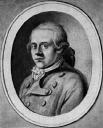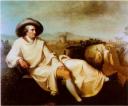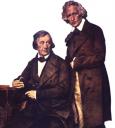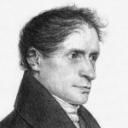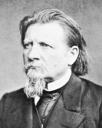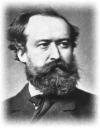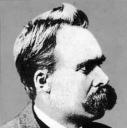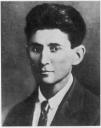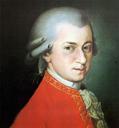Innerhalb von 400 Jahren, der deutschen Literatur hat durch massive Änderungen sowie zehn verschiedenen Epochen. Nach der Renaissance, deutscher Schriftsteller schreiben nicht so viel über Gott und der Kirche. Ich glaube, dass die protestantische Reformation hatte viel zu tun mit diesem. Die katholische Kirche verlor ihren Griff auf die Menschen, die jetzt wollte die Bibel für sich deuten. Ich glaube dies zu Schriftstellern tiefer Faszination mit dem Leben und der Natur.
Die Epoche nach der Renaissance war das Barock. Es dauerte zwischen den Jahren 1600 und 1720. Während dieser Zeit, Schriftsteller blickte zurück auf die Schriften von der Renaissance und wollte auf alten Ideen verschönern. Einer der bekanntesten Autoren aus dieser Zeit war Andreus Gruphius. Sein Gedicht “Es ist alles eitel” ist eine Berufung zurück zur Natur. Vielleicht war er anspielend, dass die städtischen Entwicklung würde zerstören uns alle.
Die nächste Epoche war der Aufklärung. Es dauerte zwischen den Jahren 1720 und 1785. Die Arbeiten während dieser Zeit betont Grund über Emotionen. Ein Beispiel für die “Erleuchteten” Autor war Immanuel Kant. Seine Arbeiten mit Philosophie definiert das Alter der Aufklärung.
Die nächste Epoche war der “Sturm und Drang”. Es dauerte zwischen den Jahren 1767 und 1785. Es war eine Form von Protest zu den Werken der Aufklärung. Autoren hat jetzt Gefühl und Natur in ihren Werken nicht als Grund und ausgebildet Schwank genutzt. Johann Wolfgang von Goethe ist ein weltbekannter Schriftsteller von diese Zeit. Sein Gedicht “Ganymed” ist ein ausgezeichnetes Beispiel von die Erstellung Stil der Zeit. Es ist nicht ein Gedicht von Grund, sondern ist ein Gedicht von Gefühl.
Die klassische Epoche war nächsten in der Zeile. Es dauerte zwischen den Jahren 1786 und 1832. Es war eine Reaktion auf die “Sturm und Drang”. Schriftsteller während dieser Zeit schrieb mit Vernunft und Gefühl. Friedrich Schiller war ein großer Name in dieser Zeit. Er mischt oft Vernunft und Emotionen in seinen Werken. Seine ausgebildete schriftlich Struktur hat sein emotional Arbeiten Glanz geholfen.
Die nächste Epoche war der Romantik. Es dauerte zwischen den Jahren 1798 und 1835. Nach insgesamt Vernunft und insgesamt Emotion, Schriftsteller während dieser Zeit blickte zurück auf das Mittelalter für ein Verhältnis von Kunst und Gesellschaft. Ein Autor aus dieser Zeit war Joseph Freiherr von Eichendorf. Sein Gedicht “Mondnacht sterben” ist rein Romantik, wenn er schreibt über seine Seele nach Hause fliegen.
Die nächste Epoche war der Bidermeier und Vormärz. Es dauerte zwischen den Jahren 1815 und 1848. Während dieser Zeit, Schriftsteller kamen hauptsächlich aus der mittleren Klasse anstatt Adel. Die meisten Werke aus dieser Zeit sprechen über das Leben der mittleren Klasse.
Die nächste Epoche war Realismus. Es dauerte zwischen den Jahren 1850 und 1890. Schriftsteller dieser Zeit schrieb über die Realität der Natur und der Gesellschaft. Anstatt verschönernd auf die Schönheit der Menschen, die Autoren würden oft beschreiben Menschen wie sie waren. Ein Schriftsteller aus dieser Zeit war Theodor Storm. Er oft in seinen Werken das Land aufgewachsen, wo er gelebt. Ein Beispiel für seine Arbeit ist das Gedicht “Die Stadt”.
Die nächste Epoche war Naturalismus. Es dauerte zwischen den Jahren 1880 und 1900. Werke dieser Zeit blieb “natürlichen” dass es keine übernatürlichen Dinge aufgetreten. Viele Autoren dieser Zeit wurden durch die Arbeit von Charles Darwin beeinflußt.
Die nächste Epoche war Expressionismus. Es dauerte zwischen den Jahren 1905 und 1925. Während dieser Zeit, eine Flut von Emotionen gefüllt Kunst wieder. Die Emotionen porträtiert war nicht immer glücklich. Eine berühmte Schriftsteller aus dieser Zeit war Franz Kafka. Seine Werke enthalten oft ungewöhnliche Umstände erlitt durch seine Zeichen.
Der letzte und aktuelle Epoche ist die Moderne. Es begann als Expressionismus war verlassen. Viele deutsche Werke aus dieser Zeit oft geht es um die Ereignisse des Zweiten Weltkriegs. Dichter wie Paul Celan schrieb mehrere Stücke über ihre persönlichen Erfahrungen mit dem Krieg.
Filed under: Uncategorized | Leave a comment »




